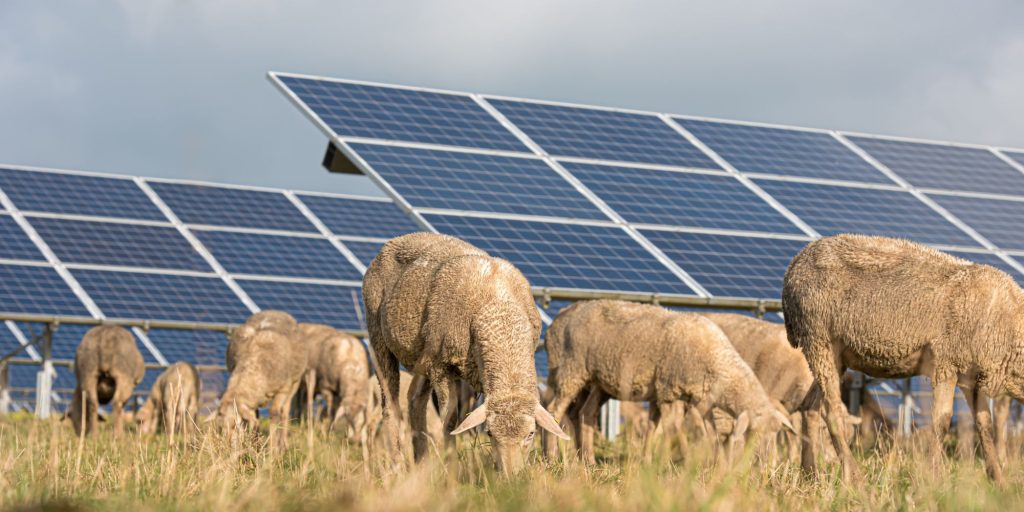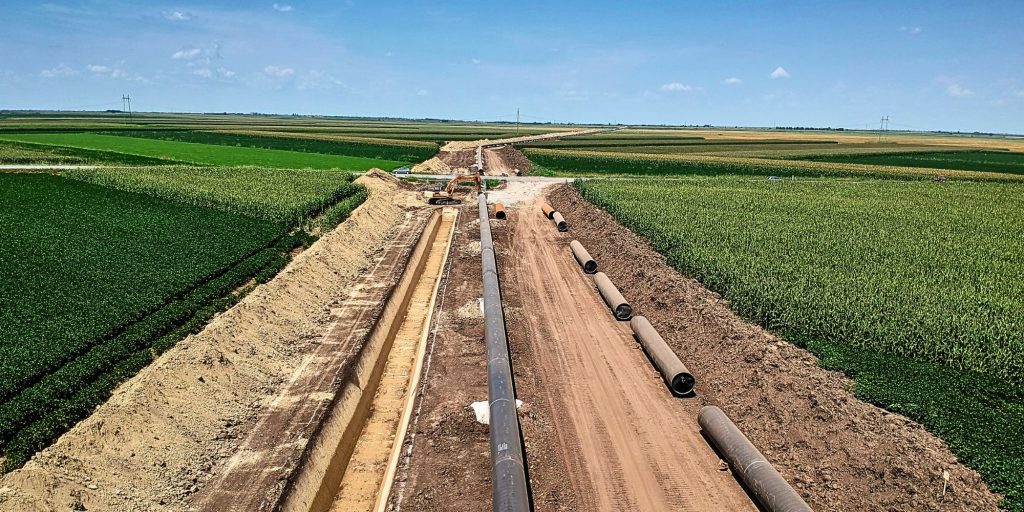Dakota Rural Action and allies defend South Dakotans’ right to reject dangerous CO2 pipelines.
In a decisive move to protect local control and landowner rights, South Dakota voters overwhelmingly rejected Referred Law 21 (RL 21) in a referendum held on November 5. With 59% of voters opposing the law, the result marks a decisive victory for communities across the state, as well as for those who have raised concerns over the environmental and safety risks posed by carbon dioxide (CO2) pipeline projects.
“This is a significant win for those committed to solving the actual issues these CO2 pipelines have raised in our state.” said Chase Jensen, Dakota Rural Action’s Senior Organizer. “We’ll stay diligent in the upcoming legislative session, ensuring that real solutions move forward and standing firm against any efforts that don’t fully address community needs.”
This was just the latest twist in a years-long campaign. Dakota Rural Action members built on their earlier organizing efforts against carbon pipelines crossing South Dakota. Members, and other local partners, reached out to hundreds of thousands of voters across the state making sure they understood the threat to local control, property rights, and safety should RL 12 pass.
Keep up to date with grassroots organizing in the West with WORC’s newsletter.
Often referred to as “Summit’s Bill of Rights,” RL 21 had been championed by Summit Carbon Solutions, a company seeking to build a multistate network of CO2 pipelines including crossing much of South Dakota. This legislation would have stripped local control over zoning related to CO2 pipeline projects, granting Summit sweeping powers to undermine the authority of county governments while disregarding the safety and well-being of South Dakotans.
“As South Dakotans, we value local control and our communities,” said Ed Fischbach, DRA board member and South Dakota landowner whose property is impacted by the proposed Summit CO2 pipeline. “By defeating Referred Law 21, the voters have proven that we value people over profits.”
The battle over RL 21 was also marked by a stark financial divide. While Summit’s supporters, including ethanol producers, poured more than $2.7 million into the “Vote Yes” campaign, Dakota Rural Action and other grassroots organizations raised a little over $220,000 to fund their efforts. Among RL 21’s supporters’ well-funded messaging were misleading claims that RL 21 would benefit schools and local communities. DRA members and allies took to the phones and social media to set the record straight.
“Summit and its big-moneyed partners thought they could buy the voters as easily as they bought the legislature,” Fischbach said. “They outspent us by over a tenfold, but voters saw through their lies.” The scale of the win, which bucked national trends, showed that voters understood that the law would undermine local authority and put communities at risk.
“Summit and its big-moneyed partners thought they could buy the voters as easily as they bought the legislature,” Fischbach said. “South Dakota is not for sale.”
The defeat is also seen as a powerful statement against the influence of corporate interests in South Dakota’s political process. “South Dakota voters have spoken,” Fischbach said. “South Dakota is not for sale.”
Adding to Summit’s legal troubles, the South Dakota Supreme Court recently denied the company’s petition to rehear its case, reinforcing an earlier ruling that Summit, as it stands now, doesn’t have the evidence to prove their case they’re a “common carrier” under state law. Summit is in the process of returning to the lower court to bring more evidence and argue for “common-carrier” status, but the decision prevents Summit from using eminent domain to seize land for the CO2 pipeline.
Emma Schmit, Director of Bold Alliance’s Pipeline Fighters Hub, one of DRA’s allies in this campaign, emphasized that the fight against CO2 pipelines is not over.
“For three and a half years, we’ve been told that Summit’s carbon scam is inevitable and time and time again we’ve proven that carbon pipelines are nothing more than pipe dreams,” Schmit said. “The power of greed will never overcome the power of people fighting against a shared injustice–and we’ll be there to prove it until these carbon con artists give up once and for all.”
With the defeat of RL 21, the path remains open for continued local oversight and a deeper focus on addressing the real risks and concerns surrounding carbon pipelines in South Dakota. Local control advocates are now calling on the legislature to pass legislation to clarify that these projects are not eligible for the use of eminent domain.
Learn more:
From Wildlife to Wells: How Dr. Barbara Vasquez Fights for Stronger Oil and Gas Regulations
WORC Supports Indigenous Groups Standing up Against Line 3 Tar-sands Pipeline

Yes, I want to help WORC elevate Western voices and hold decision-makers accountable!





